Editor’s Note
This is the 3rd installment of Jeff’s Renting in Cuenca series. We suggest reading the previous articles on Evaluating the Neighborhood and Evaluating the Property before you get to the pointy end of signing the lease.
DISCLAIMER: Before I go any further, I want to state that I am not an attorney, nor am I an expert on tenancy law. That said, I did previously work as a part-time rental agent here, and I know most of the tricks that owners and rental agents get up to. I would consider myself an “experienced and self-educated layperson” on the topic, but nothing more. Everything in this article is based on real-life experience (mine and others), but please do not interpret any of the following as “legal advice” or as the final word on any related subject.
Actually, the *Ley de Inquilinato* (which we’ll refer to as the “Tenancy Law”) is relatively straightforward. If you plug it into Google Translate (a portion at a time), you may find it very interesting. There are certain areas where the translation will still be vague and confusing, so I’ll do my best to address those parts here. If you want to view the law online, one current link is from Nexis. If you go to this site using the Chrome browser, you can right-click on the screen and choose to have it translated into English.
With that out of the way, let me start this article with one of my personal maxims: There are no bad landlords – only bad leases! Of course, you can still have a miserable landlord, but having a good lease protects you from many of their abuses and shenanigans.

By the way, this is the third and final article in my series on renting a home in Cuenca. In the first installment, I focused on evaluating the neighborhood, while in the second, I delved into the evaluation of the property itself. In this last chapter, I will address a variety of issues surrounding the process of getting a lease that’s fair to everyone involved. This is both the easiest and most important part of securing your new home.
Just so you know, I do have considerable experience with this topic. I’ve personally reviewed and revised dozens of leases here – a few of which started out very well written. But the truth is, most of them were dreadful (for the tenant). I’ve also re-reviewed and revised leases that had been previously reviewed by attorneys and found the results wanting. So now you’re probably asking yourself: “Well if it was reviewed by an attorney, why was it still full of questionable and/or illegal language? Why is it still lacking in important protections for the tenant?” I have two thoughts on this:
- Many attorneys here don’t know or understand what’s truly important for expats to include in their leases. Expectations are simply different here, so it really is essential that you be your own advocate in these matters. Never be afraid to speak up and recommend changes when there is questionable language or conditions in any lease you’re considering signing.
- In my personal experience, very few attorneys (or other service providers here) are willing to say, “I’m sorry, I’m not an expert in that area.” So while you may get any random attorney to review your lease, it’s quite possible that that particular attorney has never provided this service before, and may not be adequately familiar with the tenancy law. They’ll certainly take your money, but there’s no guarantee that you’re going to end up with a good lease.
Bottom line, I personally would not spend any money having an attorney review a lease here, nor would I necessarily recommend that you do so unless it’s going to make you feel better about things. Of course, there may be some attorneys out there who actually do a good job, but the ideal situation is that you familiarize yourself with the tenancy law yourself, and also try to internalize some of the things I’m going to cover in this article. Also, keep in mind that anything included in a lease that you sign that is not contrary to the Tenancy Law is considered binding. That’s why it’s so important to start out on the right foot and get the lease that you deserve. Here
Here are the things I would recommend that you look for (or look out for) regarding leases in Ecuador.
First of all, get a lease!

You’ll hear many expats tell you that you don’t need one, but let me assure you that you’re only asking for trouble without one. Likewise, if your lease is about to expire, then ask for a new one! Don’t play the month-to-month game here unless you have a deal with your landlord in writing. But without an active lease, you’ll be in Renter’s No-Man’s-Land, without legal recourse for owner abuse. In any case, legally speaking, a written lease is required for any rental over the amount of the basic monthly salary (currently $450).
They are also supposed to be notarized and registered with the municipality if the rent is over that amount. I used to be pretty dogmatic about renters insisting that this notarization and registration get done, but I’ve become less dogmatic about that over the years. The main reason for doing the notarization is to make sure that both parties understand and agree to all the conditions. The main reason for the municipal registration (done at the same time) is so that the authorities would know to expect taxes from the owner on the rental income – which is precisely why many landlords try to avoid the registration process, although they face hefty penalties if they decide not to. But the lease itself, as long as it’s signed and dated by all affected parties, is still a legally binding document. I still personally prefer to see leases notarized and registered, and I would at least ask my landlord to have it done, but I would not turn my back on an otherwise great property simply because the landlord wants to skirt his/her tax responsibilities. Again, the lease is still legally binding, even if it’s not registered. That said, you still need to make sure it’s a good lease!
What does the lease say about the condition in which you’re receiving the property?

You’ll find that many leases over-state the condition, to the point of saying that you received it with “everything in perfect condition.” Unless it’s a brand-new unit, no house or apartment that’s been previously lived in can possibly be in perfect condition, so make them change this. Make sure to make the same change to the same language in the part that discusses your obligations in regard to getting your deposit back, because it’s usually repeated there. Also, in the Deposit clause, it’ll usually say you have to return the house in the “same condition as you received it.”
Seriously? Even if you did rent a brand new property in perfect condition, living there for a year or more will make the property “lived in.” There’s no way you’re going to return it in exactly the same state as you received it unless you decide on your own to paint and do upgrades. But practically speaking, you cannot return the property that you’ve lived in for a few years in precisely the same condition as it was when you moved in. Not gonna happen! This is why it’s so important to state the true condition of the property on the lease, and also to set clear expectations for getting your deposit back.
So how can you maximize the possibility of getting your deposit back?
The first place to start is to add an exception for “fair wear and tear.” I usually write that in Spanish as con excepción de desgaste y deterioro normal. If you don’t have this language in your lease on move-out day, you’ll end up getting nickeled and dimed for every fingerprint, even a patch of sun-faded paint, a cabinet handle that wore out and broke off, etc. Make sure this exception is in your lease! If the owner refuses such language, I would personally consider that a deal-breaker. But the “fair wear and tear” statement is only the beginning of this process — you’ll need to elaborate a bit on other parts of the lease, and we’ll discuss that a little later in this article.
Inspecting the property prior to move-in

Tied to what I mentioned above, is that you need to go through the property before you move a single personal item into the place, and take copious photos and/or videos to show every little bit of wear, damage, scratches, dirty walls, missing tiles, cracked window panes, countertops, etc. You want to capture every little thing that’s not in perfect condition, no matter how seemingly insignificant it is. Once you have your photos and/or video, send a copy to the owner, and copy yourself on it. Then, store that media until the move-out day, because it will save you a world of trouble if you have clear evidence of how you received the property in the first place. Also, related to this, if the place is furnished, note any existing wear/tear/damage to the furnishings, and insist on a detailed inventory that also accounts for “fair wear and tear.”
One person I know moved into a nicely furnished apartment, but there were several issues: All the dining room chairs were loose and wobbly, but my friend never ate at the dining table, so he never mentioned it in the lease. Then there was a microwave that stopped working and a washing machine with a control knob that was already loose and damaged when he took possession of the apartment. Can you guess what happened on the move-out day? Yes, he was dinged for all of these things because he never went through the process of pre-identifying them. As a result, he ended up forfeiting his entire deposit. The landlady actually wanted him to pay *more* (for things that were not his fault), but we basically ignored her. (If she had a valid claim for more, she could have taken him to mediation to make that claim.)
Who Fixes What, and When?

After you read this item, please come back and reread it again! This is one of the very most important things I’ve added to leases I’ve revised. Here’s the breakdown: If there are infrastructural problems, those should always be the responsibility of the landlord. But what if you rent a furnished place? In a nutshell, most owners will try to make you responsible for fixing/restoring everything that breaks or wears out. But many of these things are old and well-used, and you should never be responsible for these repairs/replacements unless you caused the damage on purpose, or by accident, or through personal carelessness. The law specifically states that you’re only responsible for fixing things that you broke.
That said, I personally don’t mind making minor repairs around the house at my own expense. I do so because bothering the landlord over every tiny little thing almost always leads to a complicated and combative relationship. That’s my personal choice and philosophy, but I think it’s a healthy way to maintain a peaceful tenant/owner relationship. So back to “who fixes what,” I always add language similar to the following statement in those leases which do not explain who’s responsible for repairs:
Anything that was provided with the property shall be the owner’s responsibility to repair, replace, or maintain unless otherwise agreed upon elsewhere in this contract. The only exception will be if the tenant misused, abused, or intentionally caused the damage or loss involved, in which case it becomes the tenant’s full responsibility. Any damage to property that results in safety or security issues, or which otherwise deprives the tenant of the ability to live in and enjoy the property, must be addressed by the landlord immediately. If such issues are not handled in a timely manner, the tenant has the right to arrange for the repairs and pay for them directly, and later deduct that amount from future rent payments. Any such repair or maintenance arranged by the tenant will require that the tenant send a prior email notification to the landlord. The tenant agrees to obtain and deliver to the landlord a detailed receipt that details all related expenses.
But even with this language (which needs to be in Spanish), you can probably see how legitimate misunderstandings and abuses may arise. Bottom line, if you know you’re not responsible for whatever needs to be fixed or replaced, you and the owner can go to mediation for a small fee and let the mediator decide who’s responsible. Also, note that going to mediation is not obligatory for the owner, but you may be able to go by yourself and get a favorable outcome. In Cuenca, I’ve been told that there are university law students who donate their time to help tenants with mediation matters.
Be sure that any pending repairs or maintenance that are verbally promised to you are either put into the lease or written up as a side contract. Be sure to include complete-by dates, and also the consequences for not meeting those dates. In my case, the day I went to sign one lease, it started raining buckets. I then heard water dripping, stepped into the laundry room, and saw that a lot of water was streaming down the wall through the skylight above. That was when I insisted that a “repair that skylight” requirement be put into the lease, and I also included an escape clause that allowed me to break the lease (without penalty) if the work wasn’t done by the date promised. I ended up moving because the landlady refused to do what the contractor said was necessary to stop the leaks, but I did get my full deposit back.
Get it in writing!

Now that you have that protective language in the lease, it’s time to make sure everything you were promised verbally is actually put into the lease. I can’t tell you how many people I know here who were promised parking spaces or bodegas (storage spaces), but they never showed up in the lease, and thus they never materialized in real life. Don’t take the owner’s word for anything more than an empty promise; if you discussed it, get it in writing!
Also, have you heard of something called alícuota? The translation is rough “a fair share,” and it applies to the maintenance and repair of common areas in apartment buildings and many gated communities. Your lease should always state who is responsible for paying the alícuota, or if it’s included in the advertised rental amount.
Likewise, if you live in an apartment building, they need to specify if you have any other responsibilities to pay for, such as centralized gas or hot water. Usually, you’ll find centralized hot water in newer and larger apartment buildings that don’t allow you to have your own gas tanks. But that’s a separate charge from the cold water you use, so you’ll get to pay for water twice! Still, don’t leave any of this to chance–have every fee you’re responsible for included in the lease!
I recently had a friend contact me about a dispute over the electricity bill. Turns out he was going to be sharing the same electric meter with two adjacent properties, and was told that his share would only be $10 per month. But that amount never made it into the lease, and now the landlord is hounding him to pay ever-increasing amounts for electricity each month. First of all, try to avoid ever sharing a common electric or water meter with any adjoining property, it always gets messy, and there are always arguments over “who owes what.”
Relationships Change

Have you ever heard this? “I have a great landlord! We’re like best friends! He and his wife invite me to their *finca* all the time, we go out for dinner,” etc., etc. I’m just throwing this in because many expats do establish friendly relationships with their landlords. But the thing is, I can almost guarantee you that that “friendship” will completely evaporate on move-out day. Once it comes down to whether or not they’re going to return your deposit money, everything is suddenly reduced to dollars and cents. Every speck of dust and fingerprint is scrutinized and used to deduct from your deposit. Prior friendship status means nothing at this point, so again, as mentioned above, document all damage and get everything in writing.
Illegal Clauses

1. Forfeiting right to review the rental price
One of the current and favorite illegal clauses I’ve seen in almost every lease I’ve reviewed over the past several years is that the tenant “is happy with the rental price, and forfeits the right to challenge that amount through the municipality.” One of the things you should be aware of is that rental prices are supposed to be based on a very specific formula related to the commercial value of the property (and not the rate of inflation, which is something they like to sneak into the lease). There’s actually a website where you can check out the commercial value of a given property, but it’s very vague and more-than-a-little confusing. The one time I looked up a property that I was renting, they had it broken down by the value of the structures versus the value of the *land* the structures were sitting on. I think I finally figured it out and actually found out that they could have been charging me *more*. I personally do not worry about this clause, and for two reasons: If you’re happy with the price, why borrow trouble? Also, under the tenancy law, you cannot renounce or be deprived of the rights granted to you under that law. So this particular clause isn’t one you want to fall on your sword over, mainly because it’s unenforceable. So choose your battles carefully, and focus on the changes that are far more important.
2. Morality Clauses
This may not be illegal as such, but I’ve seen a number of “morality” clauses in leases, such as statements that the tenant doing anything that’s deemed “immoral” may be grounds for eviction. “Immoral,” by whose definition? Are you part of a same-sex couple? That could be considered immoral by some landlords. Are you in a mixed-race relationship? That could be considered immoral, too. There are all sorts of discriminatory practices that take place here when renting a home in Ecuador (ask any Venezolano or Colombiano), so insist that any vague morality clauses be removed. Also, many times the lease says it’s for a “single family.” What is a single family, anyway? Who makes that decision? Well, according to the Ecuadorian Constitution, you get to decide who and what constitutes “family” to you.
Of course, this can all still get messy, so when necessary, make the required clarifications in the lease so that the owner can’t decide to throw you out for having people in your house that “shouldn’t be there.” This doesn’t mean you can open your home to an unlimited number of people, but a reasonable limit should be fine. Note that this has nothing to do with subletting, which is always illegal unless it’s agreed to in writing. So if you plan on traveling a lot and letting other people stay in your property for extended periods, make sure your lease reflects this reality. And, generally speaking, subletting is only asking for trouble, because if your temporary tenant accidentally burns the house down, guess who’s going to be responsible?
Just as an example of what I’m saying, one family I know was forced to move out because they had Venezuelan friends that used to come over and hang out. The owner did not want Venezuelans on her property, and that was that. Of course, the tenants could have refused the informal eviction and waited for the landlord to take them to mediation, but they didn’t “want any problems” and decided to go ahead and move. In fact, I see and hear of lots of expats who move out of a given property because they’re having landlord issues, and because they don’t want “any problems.” But I’ve found that when you can point to a specific clause in your lease and stand up for your rights, many landlords will back down. Whatever you do, don’t let a landlord bully you into moving; have a good, solid lease, and then make them try to evict you if they think they have grounds legally.
3. Automatic rent increases
It is forbidden by the Tenancy Law to include an automatic rent increase in a lease here, and your rent remains fixed for the term of the lease. The law goes on to say that any such language will be considered “unwritten,” so even if it is included, it means nothing in the overall scheme of things. Personally, I would insist that any such mention of an automatic increase be removed.
4. First & last month’s rent
While not necessarily illegal, I consider this next practice both unfair and unethical on the part of the landlord: It’s called the “first and last months’ rent” game. You don’t see this in every lease, but it’s not uncommon either. The way this works is that the landlord will request both the first and last months’ rent because they’re afraid that you’re going to move out and disappear one night, and never pay your last month’s rent. This is a justified fear because this is precisely what many expats do. Many even go as far as to recommend this sort of theft as “the best way to go,” justifying it because “you’ll never get your deposit back.”
But remember that you’re signing a legal and binding contract, and in that contract, you’re agreeing to pay all the rent for the duration of your stay there. As for the deposit, most tenants lose their deposits because they have bad leases that don’t protect them. I’ve moved seven times since I’ve lived here, and each time I’ve either gotten my deposit back or got the value thereof. By “value,” I’m talking about making an agreement with the owner to allow me to use the deposit as the last month’s rent. Assuming you’ve kept the place up (and have arranged for a pre-move-out tour with your landlord), they will many times agree to this, even though the lease itself may forbid it. You will also have to promise to pay for any damages or losses you’re responsible for that are discovered during the final inspection.
The upside for the landlord is that they don’t have to dig into their personal bank account to repay your deposit after a couple of years. They’ve already spent that money, so it’s a potential win-win situation for both parties. But going back to the “last month’s rent” idea, you should never agree to this! What if you don’t stay there for the full term of the lease? If you don’t, there goes that last month’s rent! I can almost promise you’ll never see it again. Instead, if you do have to pay more than one month’s rent and a month’s worth of deposit, then insist that they identify any added amount as part of your security deposit.
Who can enter your property, and when?

This isn’t always a huge issue, but it certainly can be. If you have an obsessive owner who always wants to come and inspect the property, that’s both annoying and intrusive. I always add to my leases that the owner may inspect the property, but only a certain number of times per year (I personally think once or twice is more than enough). I also add that the owner must give a 24 or 48-hour notice (or however many hours is acceptable to you) before any such inspection. I also add that nobody is ever permitted to enter the property without one of the leaseholders present, or by prior written consent. The only exception is for emergencies, such as fire or flood, in which case the owner should have the right to protect his or her own investment.
How long of a lease did you request?

I’ve recently seen a trend for more one-year leases. By law, you’re entitled to a minimum two-year lease on a regular home intended as a primary residence, and that’s the option I recommend. I did a full treatment on this topic in the “Guides” section of my Facebook Group, Expats Without Agendas – Ecuador, so you can read there in more detail to see why I recommend that most people take their full two years. In a nutshell, the penalty for an early move-out is the same for a one-year lease as it is for two years. And if you’re going to move out early, there’s usually a reason for it, and it will probably happen within your first year. On the other hand, if you really like the place and want to stay there, then protect yourself and maintain the same rental amount for a full two years. And this is a minor issue, but if your lease is for a specific period of time, you’ll find that most of them have an incorrect termination date. For example, if you sign a one-year lease on the first of July, it doesn’t run out on the 1st of July in the following year, but rather on the 31st of June. It’s a minor technicality, but I like having this correct in my leases.
Pre-notification of intent NOT to renew the lease
By law, the owner must give you a 90-day notice if he/she does not plan on renewing your lease (89 days isn’t good enough). If they fail to give you such notice, the existing lease is automatically extended by law for a period of one year, with all the same terms from the expiring lease, including the rent price. (This automatic extension can only happen one time for a given lease.)
But you have a very similar obligation, which most of us never notice when we review a lease. Almost every lease I’ve seen has a specific period of time wherein the tenant has to inform the landlord of their intent not to renew the lease. If you fail to do so by the specified period, the lease will likewise automatically extend for one more year! And if you ignore that fact and move out anyway, you’ll be breaking a still-valid lease, and you’ll be subject to paying whatever early-move penalty is specified in your lease (usually the loss of your deposit). As mentioned earlier, there really is no such thing as a day-to-day or month-to-month rental situation in Ecuador; you can do it, but you’ll have none of the protections you’d have under a lease.
So the normal requirement is that you either notify the landlord that you’re not going to renew (always in writing!) or, if you plan on staying, you don’t have to say anything. Regarding the automatic extension, I would personally only take advantage of this legal loophole if I only wanted to live there for that one additional year, then move on. However, if you like the place and you get along with the owner, and you do want to stay there indefinitely, be flexible and do a new lease.
Keep in mind that the maximum for any rent increase for a primary residence is five (5) percent! And they’re supposed to justify that by showing you that the commercial value has increased, but that often ends up getting messy. If the rent is reasonable, to begin with, then five percent isn’t usually a whole lot of money. I’ve never understood why simply staying in the same property justifies a rent increase in subsequent renewals, but you can challenge it if you want to.
Just never let them hike it by more than five percent unless there have been improvements made to the property; the landlord can petition the municipality to raise the rent even higher than five percent if there have been any significant improvements to the property (apart from routine repairs and maintenance). The important thing to note is that this can happen regardless of who makes those improvements! I know of at least one expat who pumped a lot of money into their rental: They completely repainted the place, put in new bathroom and kitchen fixtures, and a lot more. They did ask for written permission to make these upgrades, which is almost always required by the lease, but guess what happened at lease-renovation time? That’s right — the landlord wanted to make a significant hike in the rent due to all the improvements made by the tenant! This is something to keep in mind if you plan on making any significant upgrades to someone else’s property.
Finally, be aware of the amount of pre-move-out notification time that they’ve given you in the lease. You’re likely to see them put in something like 60 or 90 days. But maybe your life will be in flux, and perhaps you don’t know what your plans will be 90 or 60 days out! I personally always request that they set the notice for 30 days to notify the landlord of non-renewal plans, but I’ve had a hard time getting them to go any less than 60 days. Just remember that while your window of time is negotiable, the landlord always has to give you a minimum of 90 days’ notice if they don’t want to renew. I’ve helped a few local expats get another year on their lease when the landlords neglected to give this notice, so it’s always a good thing to keep in the back of your mind.
Additional Considerations
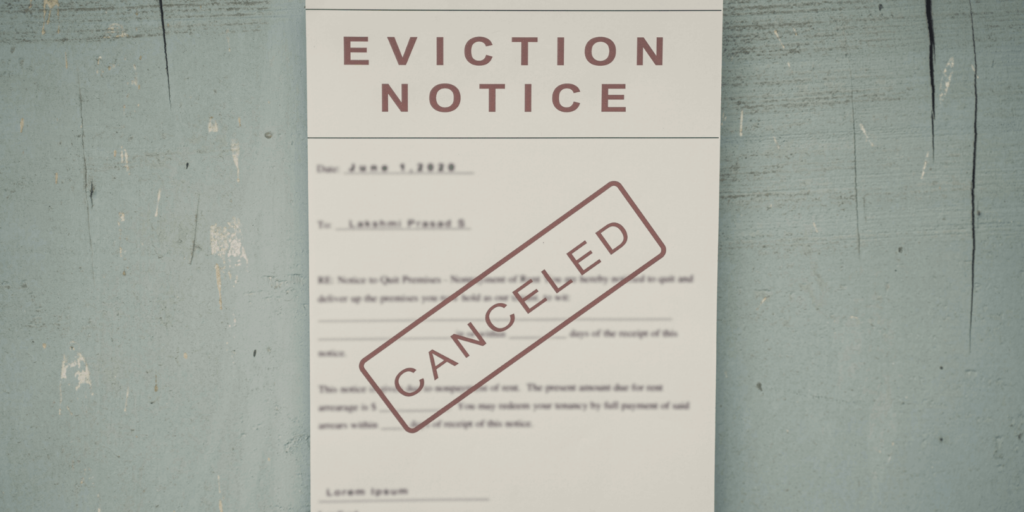
- Assuming you and your spouse and/or housemates get along, you’ll probably want their names included in the lease. That way, if anything happens to force you to move out, the others on the lease will still have the right to remain there. Of course, as long as your name is on the lease, you’re still on the hook for any damages! So consider very well who you’d like to have on the lease, and maybe who you’d rather leave off!
- Keep in mind that most leases are either drawn up by the rental agent, or sometimes the owners will have their attorney prepare one. There is a “standard template” out there, but it’s heavily slanted in favor of the owners. But also keep in mind that agents will typically reuse the same lease over and over, and may forget to add or subtract information specific to your rental situation. So give it a good read and make sure the address and description match the terms agreed upon and also make sure that all your changes have been incorporated.
- All rental properties are required to be clean, sanitary, and have working plumbing and electrical. If they do not, the owner is required to make that happen at their own expense. Failing to do so can result in fines and other sanctions against the owner. As such, one of the things I always insist on is that they do a deep cleaning (limpieza profunda) of the property before I move in. And I specify certain things, like not putting wax for wood floors on ceramic tile, and that they clean inside all the cabinets, drawers, closets, etc. If the windows are especially dirty, request that too. I then inspect to make sure this is done, and if it’s not, I call them back to “try again.” This is much easier to pull off if you’ve only given the deposit so far. Always withhold the rent until the property meets agreed-upon requirements.
- One favorite “trick” owners will use to try to force tenants out early is to tell said tenants that they’re selling the place. Well, let them try to sell it! They still have to give you 90 days’ notice before the date of the transfer of ownership (which means they have a closing date), and it still may take them a couple of years to sell it anyway! I’ve seen this game play out dozens of times, and what usually happens is that the expat tenant immediately starts looking for a new home. Keep in mind that if you don’t start seeing a line of prospective buyers coming along with the owner to look at the place, they probably have zero intention of selling. Instead, they probably just think they can rent it for more to someone else, or perhaps they have some other use in mind.
- A similar trick to get tenants out is to tell us that they’ve decided to let one of their family members live there but that means nothing in terms of the tenancy law. The only way a “change of occupant” can force you out is if the owner sells the property, or if the owner himself needs to move back into the home. In the latter case, the owner has to prove that they have nowhere else to live. There are other legal means of terminating a lease early, but those are all spelled out in Article 30 of the Tenancy Law, and they all require that the owner give you a 90-day notice before they can force you out.
- English-language leases serve no purpose, other than to help you understand what it says. If you’re going to have a lease that’s signed, notarized, and registered, it must be in Spanish. Whether or not an un-notarized and unregistered English-language lease is enforceable, would be a decision for the courts here. But I would personally insist on signing only the Spanish-language version, and then only after you’re sure of exactly what it says. Also, I have seen English-language leases (provided for translation purposes only) that do not match the provisions of the Spanish version! Never trust that you’re getting an accurate translation unless you’re having an independent, fully bilingual person translate it for you (and that should never be the owner or the agent).
- The maximum legal amount of rent for a furnished property is 25 percent over the legal rental value of the same property, unfurnished. In my personal experience, furnished rentals in Cuenca average about $125 more per month than equivalent unfurnished properties. The owner is supposed to include the value of all furnishings in an inventory attached to the lease, but I’ve never seen those values specified. For those of you who plan on making Ecuador a long-term home, you’d most likely be better off investing in your own furnishings. It’ll give you much more flexibility in choosing your next home, and it will save you a lot of money in the long run.
- More on notarization and registration of leases: Neither your agent nor the owner has the right to walk into a notary’s office without you and get the lease notarized and registered. Notarization is a process whereby the notary ensures that both parties fully understand the lease and all its provisions. In one of my lease signings, I was forced by the notary to hire a translator to go over the lease with me. But most of the agents and the owners have friends who work at the notary’s office who will simply “pencil-whip” it without your being there. This is a huge no-no! Insist on being there for this process, and make sure you get one of the notarized copies. Also, notarization and registration are legal requirements for the owner, not for you. But they almost always try to make you pay these fees, stating, “Well you’re the one who wanted it notarized!” But no, this is absolutely not your responsibility, so don’t let them coerce you into paying for it. Now, I have seen tenants agree to pay either half or all of these fees (against my advice), so if you’re feeling especially generous and are trying to make a good impression on the landlord, there’s nothing stopping you from paying.
- Security deposits are usually equal to one month’s rent, but up to two months’ worth is permissible. You’ll usually see double deposits in high-end or furnished properties. For an average house or apartment that’s unfurnished (or very sparsely furnished), I would never pay a double deposit unless I really loved the place and had to have it (which I did once!).
- Most landlords request that you deposit the rent payment in their bank account. When you do this, you should take a photo of the deposit slip and message that to the landlord right away. This is because there’s sometimes a lag between when the money is deposited, and when the deposit shows up on the landlord’s account. You should do exactly the same thing with any utilities you’re required to pay, as missing those payments can get really messy for the owner.
- The law allows the owner to evict you after you miss two rent payments.
- This is probably just “lease trivia” for most of you, but if you end up renting the same place for at least 15 years, you have the first option at buying the place, should it ever go on sale.
Basic Lease Vocabulary:
- Arrendador/a: The owner/landlord
- Arrendatario/a: The tenant
- Amoblado: Furnished
- Alícuota: Your (the owner’s) share of the cost of maintaining common areas in apartment buildings and gated communities
- Bien Inmueble: The property itself
- Bienes Raices: The Spanish term for the “real estate” business
- Canon: The agreed-upon monthly rental amount
- Contrato de Arrendamiento: Rental Contract
- Cocina: You probably already know that this means “kitchen,” but the same word is also used for a stove.
- Corredor: It translates as “runner,” but it’s often used in place of “agente” for a real estate agent.
- Encimera: This is a plain cooktop without a built-in oven, or “horno”
- Garantía: Security deposit
- Luz: Translates to “light,” but in this case, it refers to electricity in the property
- Mejoras: Improvements (which always require written permission to do yourself)
- Plazo: The agreed-upon rental period (1 year, 2 years, etc.)
- Sin Amoblar or Sin Muebles: Unfurnished
In Summary
This certainly isn’t an exhaustive treatment of all the lease issues you could run into, but without a doubt, they’re the most common issues you’ll encounter. If you just heed the things I’ve mentioned above, that will stave off a good 80% of the potential problems that you’ll face as a renter here. Again, I’m retired from doing lease reviews and revisions, but feel free to post any questions in my Facebook group, Expats Without Agendas – Ecuador, and I’ll do my best to answer them in a timely manner. You can also view YapaTree’s current rentals here.

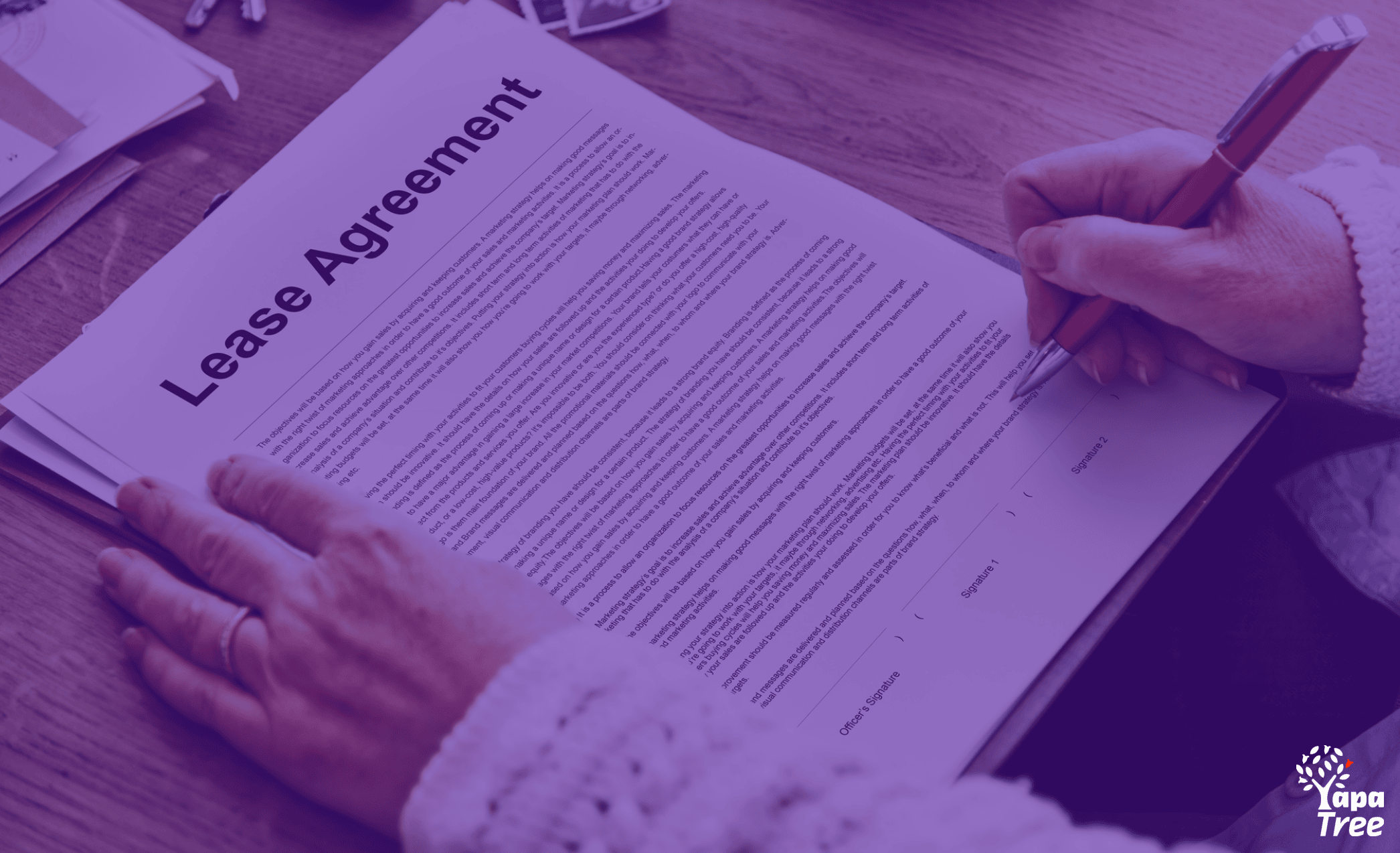




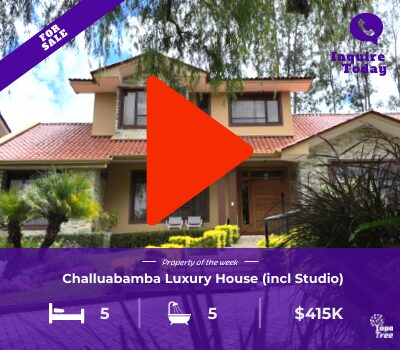




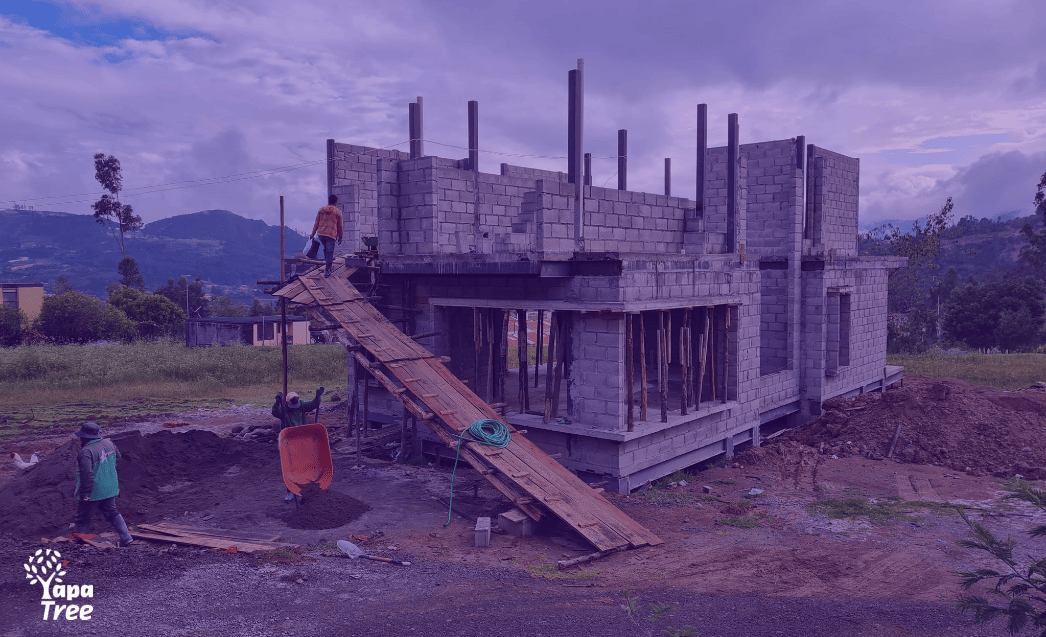

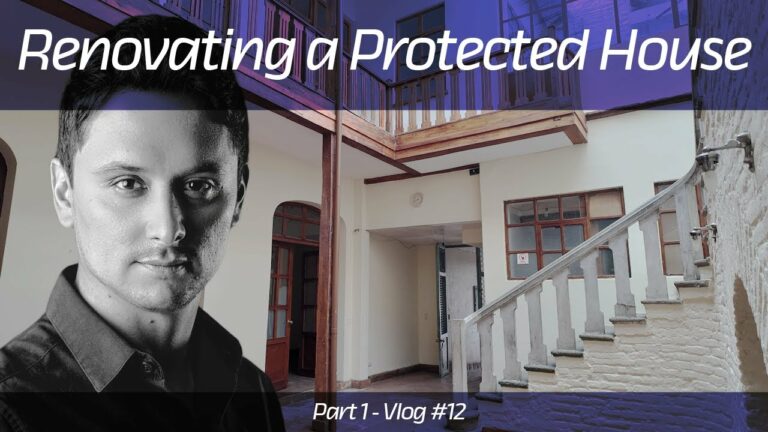

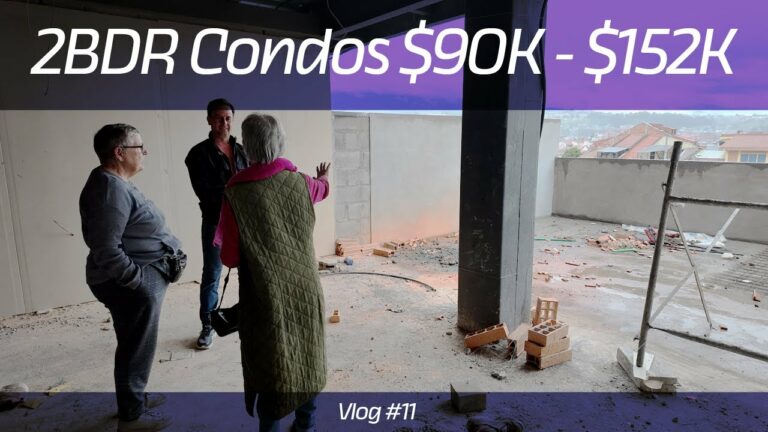

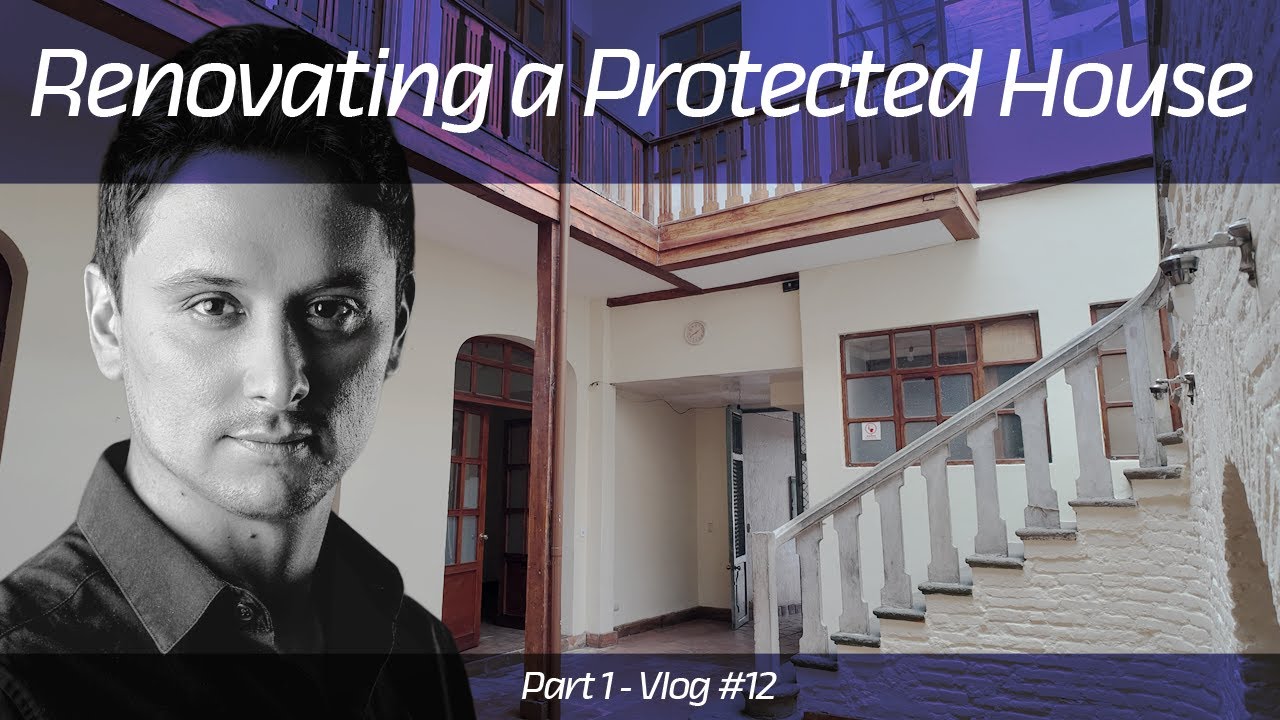

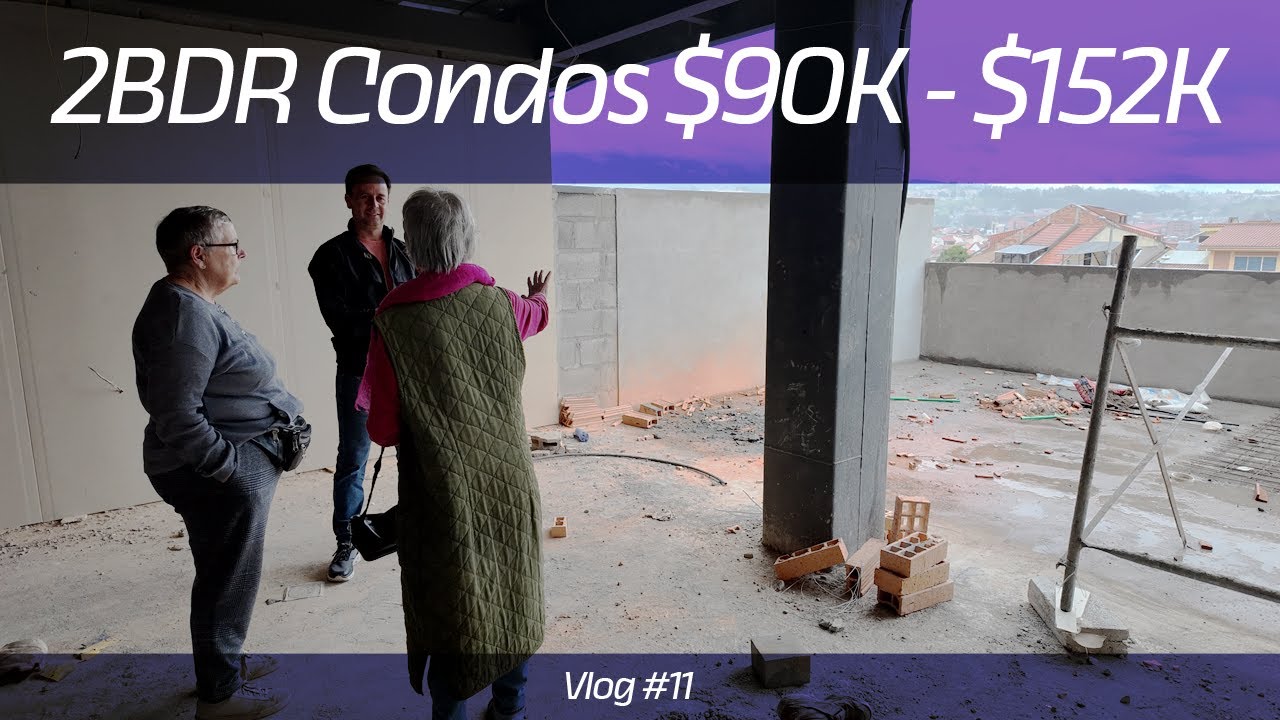
4 Responses
Jeff, thank you so much. These topics are worth their weight in gold. This whole series that Yappa Tree is publishing is invaluable. I wish there was an option to print these out because they are long. I need to highlight the most important things and also have it on hand (and in a folder) when I look around, vs. on my phone. Maybe I’m old school but I hope you guys add that.
Renting to me is the single most intimidating thing for me for this move. It’s hard enough to navigate the state laws in my home country for landlords and tenants but in another country? There are different laws, ways of doing things, etc., so thank you! Great article.
Thank you for your kind words, Ellen. You actually can print these out from right within your browser if you want. If you use Chrome, just go up to the 3-dot menu in the upper right corner and click on “Print.” Another option would be to select all the text, copy it, and paste it into a Google Docs or MS Word document, then print it out from there. I don’t think the photos will be included, but theyré not critical to the content of this particular article.
IF you decide to share the content with anyone else, we do ask that you add this notice to the document before it is shared: “This article first appeared on YapaTree.com” … and then include the link to the article as well.
“For example, if you sign a one-year lease on the first of July, it doesn’t run out on the 1st of July in the following year, but rather on the 31st of June. It’s a minor technicality, but I like having this correct in my leases.”
This is the way I’ve always done it as a landlord.
You move in on July 1st and move out June 30th by midnight, that is 365 days.
I’m not sure why you would want 366 days? But you could run into a problem if you re-rent the unit right away, which is what I almost always did.
This means there would be two tenants that are renting your apartment simultaneously. And that’s not good. Even the utility companies wouldn’t allow it.
Otherwise a very well written informative artículo. Gracias.
I guess I’m not sure why you say “otherwise.” I said exactly the same thing you’re saying. I only referred to it as a “minor technicality” because I’ve never seen someone move into a new home 8 hours after the most current tenant has moved out. However, most of the many leases I’ve personally reviewed for myself and other people are written that way, for 366 days, which I always changed to the proper end-date. But I’ve likewise never seen anyone charged extra for that extra day, so for the tenant it’s inconsequential.